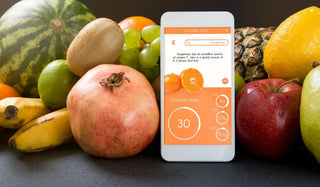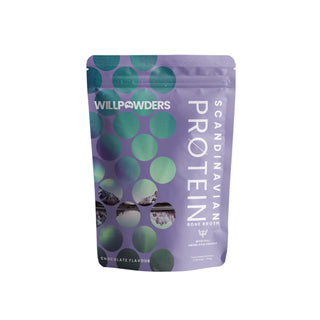
Hack Your Hormones
Navigating the Algorithmic Maze: Unveiling the Pitfalls of Health Apps.
In the fast-paced world of health and wellness, where data now reigns supreme, eating close to nature, moving our bodies and tuning in to how we feel seems to have been usurped by algorithms. Now don’t get us wrong, algorithms can play a pivotal role in shaping our understanding of personal health and Apps promise a revolutionary approach to nutrition and well-being, leveraging “sophisticated” algorithms to provide tailored insights. However, beneath the surface, a complex web of challenges and potential pitfalls emerges.
Young Tech
Health apps are designed to provide personalised nutritional insights based on individual responses to a series of lifestyle and dietary questions, as well as the analysis of microbiome data. However, we know that these apps are young and are often carbon copies of glucose monitors, so much so, some health apps are literally the same tech that have been bought from corporations that make tech for diabetics. What they don’t do is measure insulin metabolism and production. Measuring your insulin response is valuable because it reflects how effectively your body regulates blood sugar, which we all do differently. At WillPowders, we have been speaking to people in the industry about new tech that does exactly this. Why? Because your insulin health is the most important reading for chronic diseases. You can have low blood sugar but does this mean that your insulin response is working over time, leading to insulin resistance and resulting in diabetes, heart disease or cancer? All, of which, are caused by elevated insulin levels and not increased blood sugar levels. Dr. Casey Means, co-founder and chief medical officer at a digital health company says “It does not tell you the whole story, and just optimising around glucose is not going to be enough to create the perfect diet for you.” So the question is - are these health apps measuring the right stuff?
Personalised Results, or General Consensus?
In addition, health apps and tech may provide you with recommendations based on a general consensus surrounding nutrition. For example, there seems to be mania over fibre, and whilst fibre is a nutrient that can support digestive health, some people do fine with a ketogenic lifestyle where good fats support all their biological wizardry. In addition, given the data that these apps are fed and bearing in mind what our doctors are still telling us about cholesterol, urging us to eat low fat foods to keep our cholesterol levels in check, can these apps distinguish between HDL (the good cholesterol) and LDL (the not so good cholesterol)? All we’re saying is that it’s worth applying some human to the equation as well.


Data and Results...
Apps and health tech rely on databases for nutritional information, databases somewhere out there in the ether, which might not encompass all food variations or accurately reflect real-world nutrient content variations. For example, A keto diet, high in fats and low in carbs, might skew a health app analysis because it deviates from typical dietary patterns. The app might misinterpret the high fat intake, potentially flagging it as unhealthy, as it may not fully understand the context of a ketogenic diet. Adjusting settings or manually inputting the diet type can help improve accuracy in such cases because ultimately, any app’s effectiveness is influenced by the accuracy of user input. However, we all know there are such things as user error and inaccurate or incomplete information can impact the precision of nutritional recommendations. In addition, the accuracy of microbiome analysis depends on the completeness of the data and the evolving nature of microbiome science. There’s just so much we are yet to learn…as does the algorithm- evidently.
Your Key Takeaways…
Health apps may struggle to accurately measure the nutrient landscape of certain foods and supplements because their algorithms heavily rely on databases for nutritional information. These databases might not always reflect real-world variations in nutrient content due to factors like soil quality, growing conditions, the derivation of ingredients and processing methods. When it comes to these apps, we must ask: what is their definition of Ultra Processed Food (UPFs) and what data set have they used to measure rises in blood sugar, the effects on the microbiome and the impact of ingredients? Who IS their data and is it based on the norm or the nuanced?
Whilst apps and tech analyse data such as ingredient lists, portion sizes, and sometimes user input to estimate the nutritional content of the consumed food; however, do they measure the individual effects of these ingredients? What you need to remember is that everyone’s different and the way that we process food is also different. One person might not experience a blood sugar rise after eating protein, whilst someone else might.
Health apps might face challenges with accurately measuring the nutrient landscape of foods, such as natural protein powders and other supplements, due to the complexity of their composition. The algorithms rely on databases that might not capture nuanced variations in natural ingredients. Factors like sourcing, processing methods, and inherent variability in natural products can lead to inaccuracies. Can it decipher between a grass-fed protein source and a synthetic and ultra processed one? I think it would struggle!


Mistaken Identity
Moreover, limited data on specific products or batches may hinder precise nutrient analysis, affecting the app's ability to provide accurate nutritional information for such foods and supplements. Natural or minimally processed protein powders might be mistakenly labelled as ultra-processed if the app's database lacks specific information about the sourcing and processing methods of individual products. The accuracy of these classifications depends on the comprehensiveness and specificity of the underlying data, which may not always capture the intricacies of various food products.
Apps could potentially misclassify protein powder as ultra-processed, especially if their algorithms rely on general categorisations rather than detailed ingredient analysis. Our protein powder is processed because it goes through some processes to produce the final powder, but these processes don’t include adding a shopping list of synthetic and lab born ingredients to make it mix or taste good, unlike most protein powders on the market. So should it be classed as a UPF? No, it shouldn’t! Can a health app distinguish between these two significantly different products? No, they can’t! And that’s where users of health apps need to tread carefully.
While these apps strive to provide accurate nutritional insights, users should be aware of potential limitations and use the information as a general guide rather than taking it as an absolute. It’s a definitely-maybe kind of situation.
Health App Algorithms - Urrrgggh Computers!
Algorithms, though powerful, often fall prey to the assumption that a universal solution exists for everyone. Health apps may inadvertently perpetuate the myth of a one-size-fits-all diet, neglecting the unique nuances of individual biology and lifestyle. The consequences? Users might find themselves on a health journey that doesn't align with their specific needs, or they may be told that certain foods and supplements are something they are not.
You need to remember that algorithms are only as good as the data they are trained on. Concerns arise when health apps predominantly rely on data from specific demographics, potentially leading to biassed outcomes. If the algorithm is not trained on a diverse range of individuals, it might overlook the health needs of underrepresented groups, exacerbating existing health disparities. Can it tell if a woman is peri-menopausal and lacking in oestrogen for example? Will it suggest a diet high in good fat to support hormone production and metabolism? It’s doubtful.
While algorithms excel at crunching numbers, they might struggle to capture the holistic nature of health and the intricacies of natural born products. Health apps, in their pursuit of precision, may inadvertently prioritise quantifiable metrics over qualitative aspects of health and well-being, neglecting the individual components that make up someone’s best self.
In the rapidly evolving landscape of health technology, it's crucial to approach algorithm-driven health apps with a discerning eye. While they hold the promise of personalised well-being, users must remain vigilant about the potential pitfalls that lurk beneath the surface. As we embrace the future of health tech, a balanced perspective is essential to navigate the algorithmic maze and ensure our well-being remains at the forefront of the digital revolution.


The New York Times reported:
The field of personalised nutrition is still in its Wild West phase, and experts say it’s important to sort through the hype. Many companies are willing to test your microbiome and offer A.I.-driven dietary recommendations — as well as sell you supplements — but few are based on scientifically rigorous trials. Last year, uBiome, which made one, was even charged with fraud.
Proceed with Caution
While health apps can offer valuable insights, users should interpret its recommendations cautiously, recognising the potential limitations inherent in any algorithm-based nutrition app. Doing your due diligence for personalised health is advisable and remembering that when something derives from nature, it’s not a UPF!
Recipes
Your post's title
Disclaimer
Our blogs are written with love in the hope that they go some way in helping you feel like the rockstar you are, and whilst we do our due diligence, research like maniacs and fact check our stuff, we know everyone’s journey is different. They are intended to educate and empower you, not usurp medical advice. We would never advise you to stop, adjust, or modify any prescription medication without the direct supervision of your healthcare practitioner, but don’t be afraid to talk to your doctor about your new found knowledge, brought to you by the marvels of nature because they don't know everything! Blogs are always informed by Davinia but often written by a member of the team. Not all blogs reflect Davinia's experiences and sometimes provide alternative perspectives



